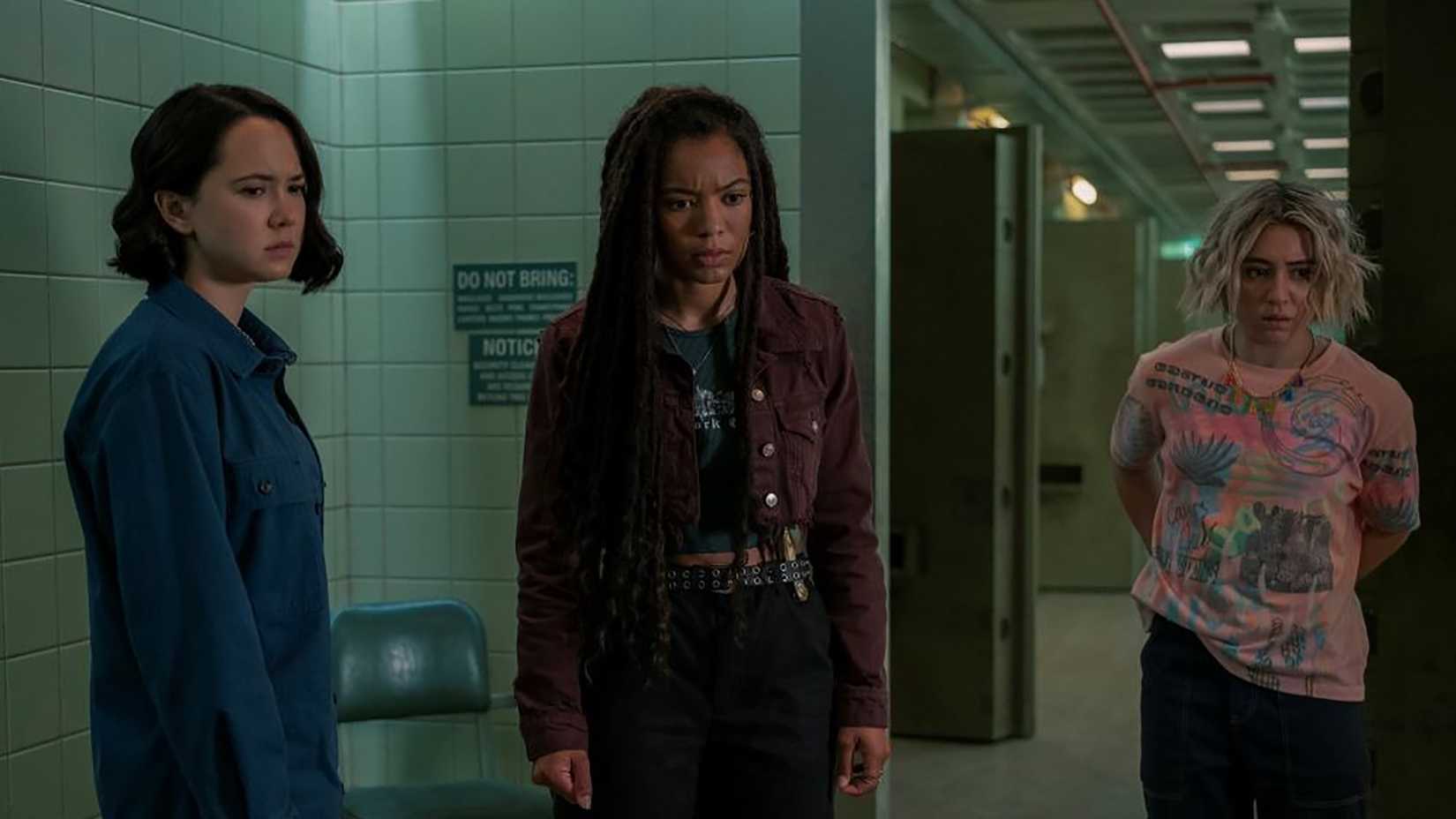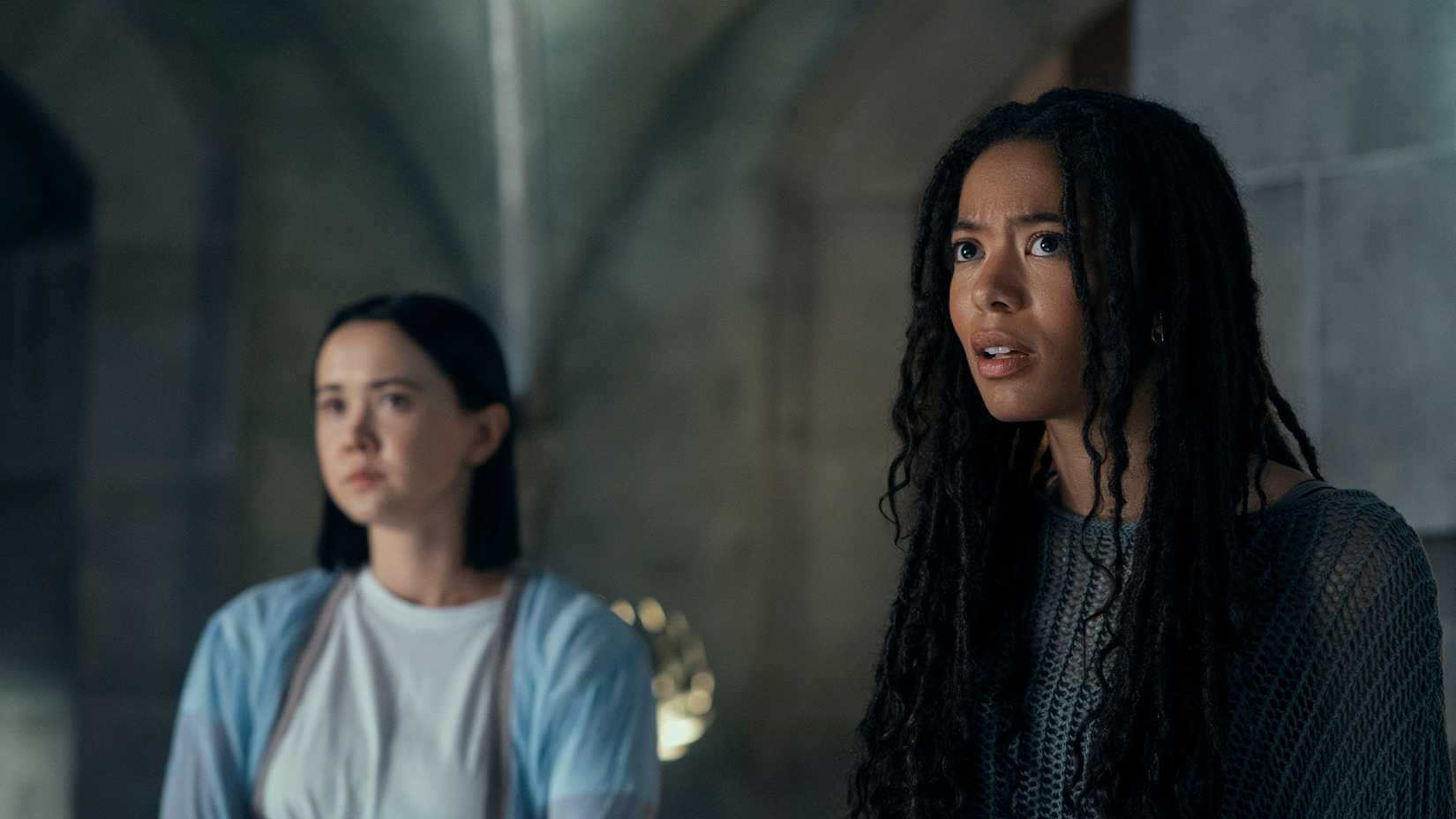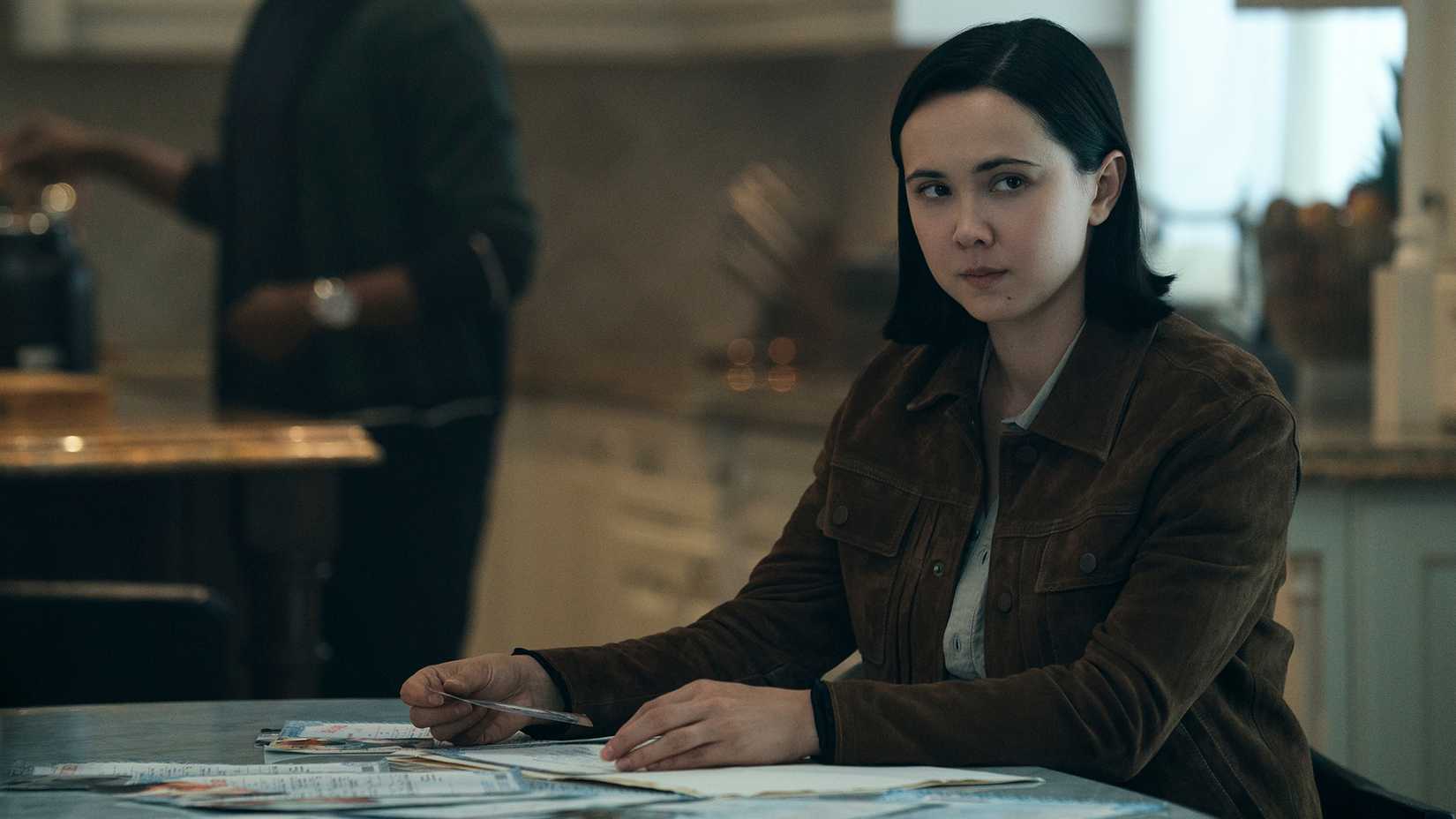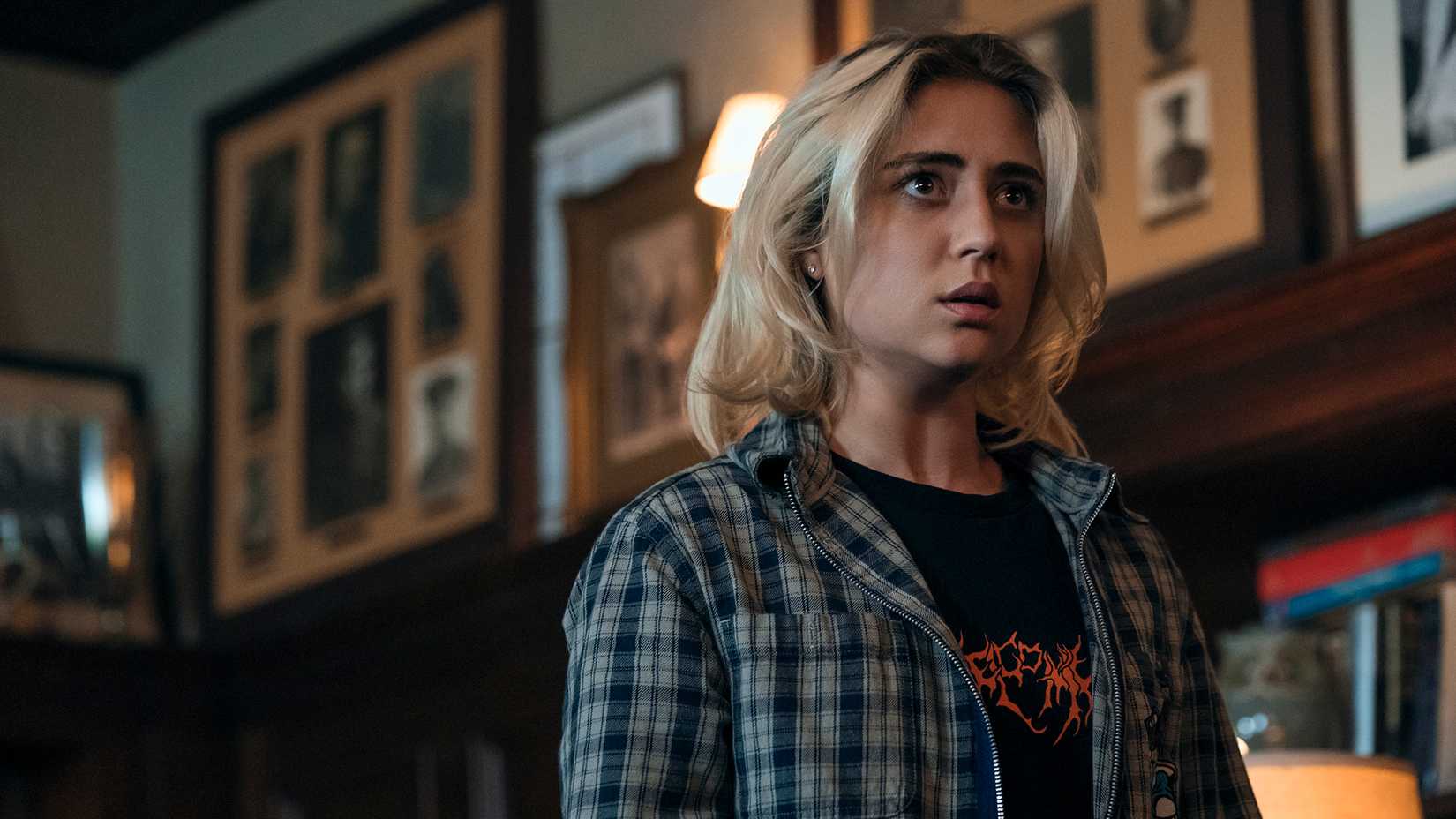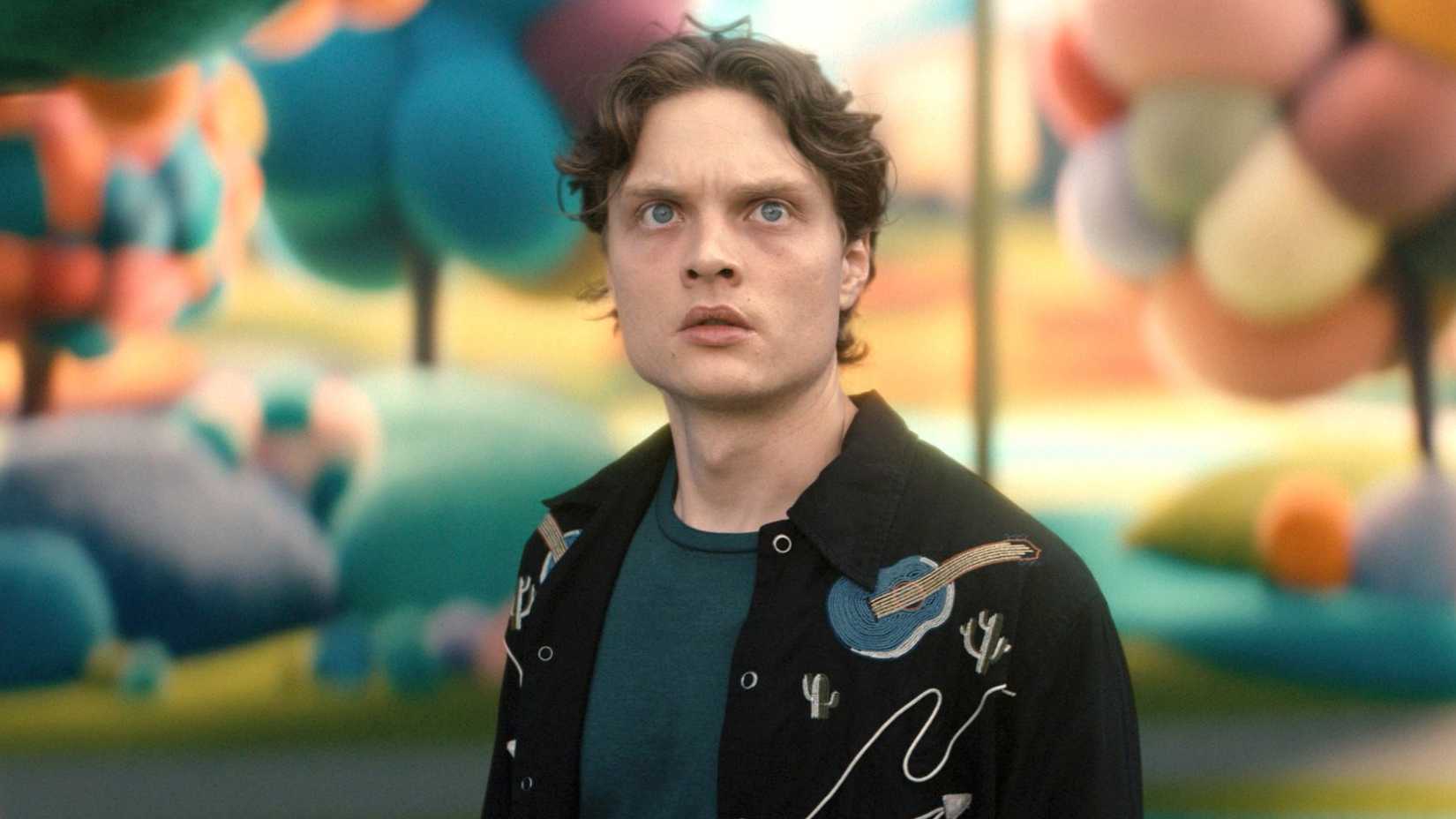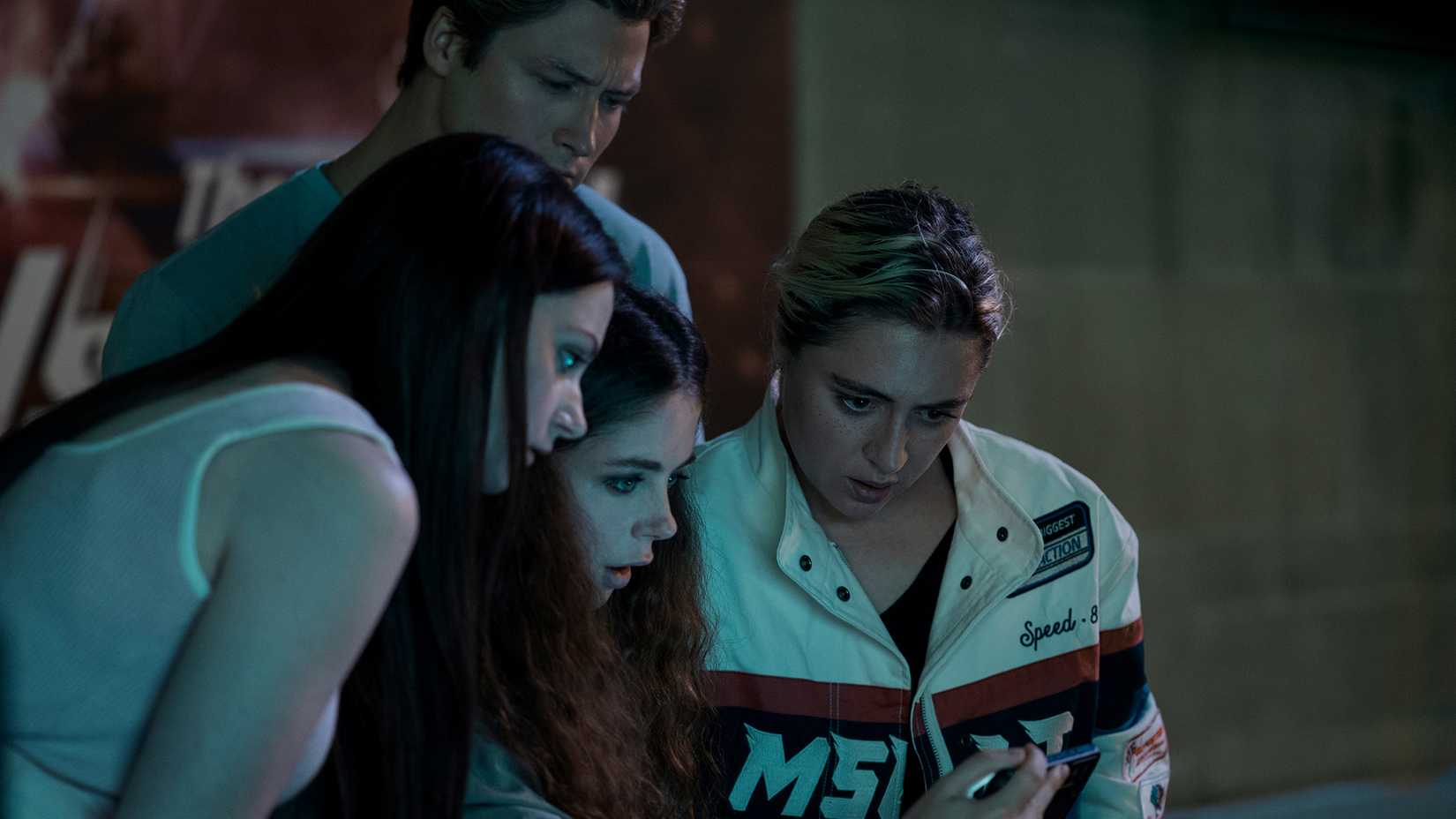Gen V has never apologized for being a show that delivers heavy political commentary. The storylines tend to mirror real-life political, social, and economic situations and sentiments, of course, with embellishments that integrate the ideas of a world where superheroes and humans coexist. Since Season 1, however, it has been evident that the students at the center of the series all face personal challenges designed to raise awareness around mental health, all tied in some way to their powers. And this trend intensifies in Gen V Season 2.
Marie, Emma, and Jordan’s Powers Reflect Their Mental Health Journeys in ‘Gen V’
With every character in Gen V, there’s something about their superpowers that mirrors real-life struggles that coming-of-age young adults face. With Maverick (Nicholas Hamilton), for example, his power to make himself invisible may be reflective of students who feel as though they are unnoticed by others, disregarded, while trying to find their place and identity. His power amplifies this, as do the powers of all the main characters, particularly in relation to their own insecurities and feelings.
Marie Self-Harms To Deal With Depression
For the lead character, Marie (Jaz Sinclair), for example, she carries a pocket knife and slices her hand every time she needs to access her blood to use it as a weapon. It’s something Dean Cipher (Hamish Linklater), who has a commanding power of his own, brings up in their training. He asks her why she does this, because if she were to truly harness her powers, she wouldn’t need to. But it’s also a reflection of her insecurities and depression, a method of self-harm.
Marie lost her parents when she got her first period. Unaware of her powers, the blood uncontrollably weaved around the bathroom, killing her mother and father in the process. It’s easy to understand that this tragic event left Marie lost, confused, and rife with guilt. She manifests this, in a way, through cutting her own hand. As a Supe, her skin constantly regenerates, so she isn’t technically harming herself. But while she is always able to physically heal, the emotional pain never goes away.
Jordan Physically Switching Reflects an Identity Crisis
With Jordan (London Thor, Derek Luh), they have always struggled with identity as a “bi-gender” person who seamlessly shifts between female and male presenting forms. Each form has unique powers, yet Jordan has always felt alone and unaccepted. This began with their parents, who not only caused this superhero status but then resented Jordan for being what they are.
When Dean Cipher calls Jordan weak, it’s evident that this cuts deep. Once it becomes clear that Marie’s powers are much stronger than Jordan’s, despite Jordan having been considered the most powerful Supe on campus, the identity crisis worsens. It doesn’t help that the school and society try to paint Jordan as a “freak,” a villain, a “Gender Bender” who should be vilified. It takes a mental toll, something Jordan often expresses when trying to find their true identity amidst the chaos.
Emma’s Self-Loathing and Lack of Confidence Manifest in Physical Size
Finally, there’s Emma (Lizze Broadway), who has been living with insecurities and self-hate for some time. Her powers are tremendous, but to activate them, she believes she must damage her body by binge-eating to become large and purging to become small. Chances are, Emma could transform more easily if she were to tap into herself better. Instead, the self-hate and purging make her small, while binging and passionate anger and self-loathing make her big, all out of her control.
Feeling small literally makes her small, and she needs constant reassurance to gain confidence and grow in size. It’s easy to see how this mirrors real-life mental challenges. In the beginning, when she’s small, Emma does ridiculous things to gain attention, believing this is the only way she can find purpose and that people will like her.
As Season 2 progresses, Emma continues to suffer from these feelings of self-loathing, driven back into drinking and doing drugs as a way to cope with the loss of Andre (Chance Perdomo), who she credits with being the one person who helped her find her inner confidence. Emma’s character is highly relatable, particularly to those who have experienced feelings of inferiority or struggles with eating disorders.
Sam’s Journey Is the Most Insightful
Sam (Asa Germann) has had the most intriguing journey on this front. He was captured and held in The Woods, where he underwent intense experimentation. His powers of incredible superhuman strength and durability are especially dangerous, given the apparent mental health issues he believed he developed because of being injected with Compound V and undergoing these experiments.
In the first season, we see him hallucinating, seeing puppets from a show he recalls from a happier time in his life when he was a kid. Of course, these puppets turn out to be humans, and he ends up ravaging them in the most gruesome, violent ways while he’s in this sort of fugue, dissociated state.
He finds solace in Cate (Maddie Phillips) being able to mind control him into simply not caring about anything, so he can’t feel so deeply. It’s an obvious symbolism for the numbing someone might get by drowning their sorrows in drugs, alcohol, or other addictions. When Cate refuses to reinstate this mindset (unbeknownst to Sam, because her powers aren’t working), he is furious. But after a heart-to-heart conversation with Jordan, Sam makes a significant decision that could alter the trajectory of his life.
He visits his parents for the first time in years, exploring his childhood homes in an attempt to rediscover himself. He sees his old bedroom, with the height charts his parents made of him and Luke (Patrick Schwarzenegger) as they grew up. He reconnects with his parents, who reveal that they visited the school after seeing him on the news and discovering he was not dead as they had believed. But they were told they could not see him.
The biggest mental health revelation comes for Sam, however, when he learns from his mother that Compound V didn’t cause his mental health issues. Rather, he always had violent tendencies and hallucinations, something his uncle suffered from as well. If anything, his parents thought Compound V might help. However, it only added incredible strength, making him capable of hurting people even worse than he had before.
While it’s a sobering reality for Sam, it’s also a bit of a relief. He can finally sink into his true self without feeling resentment and bitterness about what Compound V did to him. His mom blames herself, but he assures her it isn’t her fault. It’s just that, somewhere in the genetic pool, he became a victim of this plight. But the mental health challenges are part of him, not a byproduct of the drug. Coming to terms with this is a massive turning point for the character.
Everyone Is on a Journey To Healing in ‘Gen V’ Season 2
What’s most positive about all these subtle sub-themes of mental health is that everyone is working to overcome their challenges. While Cipher might not necessarily have good intentions for helping Marie harness her abilities, realizing she can accomplish so much without hurting herself in the process is a big step, along with healing the relationship with her sister Annabeth.
Jordan has already begun to stand up to their parents and is embracing who they are. This is largely due to the help of Marie, who constantly reinforces that they are enough and that she loves every part of them. Emma, meanwhile, still has a long way to go, but she’s finding purpose. She has found a group of misfits like her, people who feel even more self-conscious about their powers and their beliefs. Even Harper’s (Jessica Clement) ability to mimic others’ powers for 60 seconds symbolizes the struggle of not fitting in. (Never mind the odd rat-tail she is also forced to live with, symbolic of a physical anomaly.)
The theme of overcoming mental health challenges is evident throughout the series, making Gen V far more symbolic than some fans realize. The political commentary is blatantly apparent to anyone who watches and can draw comparisons to the current landscape. However, upon closer examination of each character, it becomes clear that their powers are also manifestations of their insecurities. Stream Gen V on Prime Video.

- Release Date
-
September 28, 2023
- Network
-
Prime Video
- Directors
-
Nelson Cragg, Clare Kilner, Philip Sgriccia, Sanaa Hamri, Shana Stein, Steve Boyum
-
Jaz Sinclair
Marie Moreau
-
Lizze Broadway
Emma Meyer / Little Cricket

